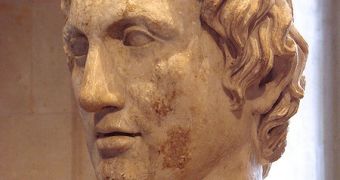Alexander the Great was, arguably, one of the most prolific conquerors of all times. In spite of his short life of only 33 years (356–323 BC), he managed to conquer all of Greece and the vast majority of the Persian Empire, reaching all the way to India, North Africa, and the Middle East. He has been credited for a long time with founding a number of cities bearing his name, but recently, mounting evidence seems to show that the great port city of Alexandria, built on Egypt's coasts, was founded some time before the Macedonian arrived there and claimed it as his own.
According to documents of the time, the magnificent city was founded by Alexander in 331 BC, as he was wreaking havoc among the Persian armies alongside his faithful phalanxes. The urban center is located on the West banks of the Nile delta, on the Mediterranean Sea, which made it one of the most busy ports in the world at the time. Its strategic position also made it a key city in any conquest campaign that was fought after Alexander the Great died, on either 10 or 11 of June, 323 BC. His death took place in the palace of Nebuchadnezzar II, in the former Persian capital of Babylon.
The new investigation, which refutes the fact that the Macedonian founded the city, was conducted by US Geological Survey (USGS) expert Christopher Bernhardt and colleagues, who discovered microscopic bits of pollen, and charcoal in ancient sediment layers. This means that the area had been inhabited for several hundred years before Alexander set out to conquer the known world. Fragments of ceramics and traces of lead in the same area were also discovered in previous studies, by several different research teams.
Archaeologists also don't know for sure whether the original settlement was Greek, Egyptian, or if it belonged to an entirely different culture. “At this point I don't think you can tell much about the people themselves,” Bernhardt says in an e-mail to LiveScience. His finds were accepted for publication, and are scheduled to appear in the upcoming issue of the Journal of Coastal Research. The investigation also seems to be supported by ancient writers. In Book 4 of his masterpiece “The Odyssey,” Homer describes a one-day sail from a port-city to the nearby island of Pharos, which suggests that Alexandria was already there.

 14 DAY TRIAL //
14 DAY TRIAL //